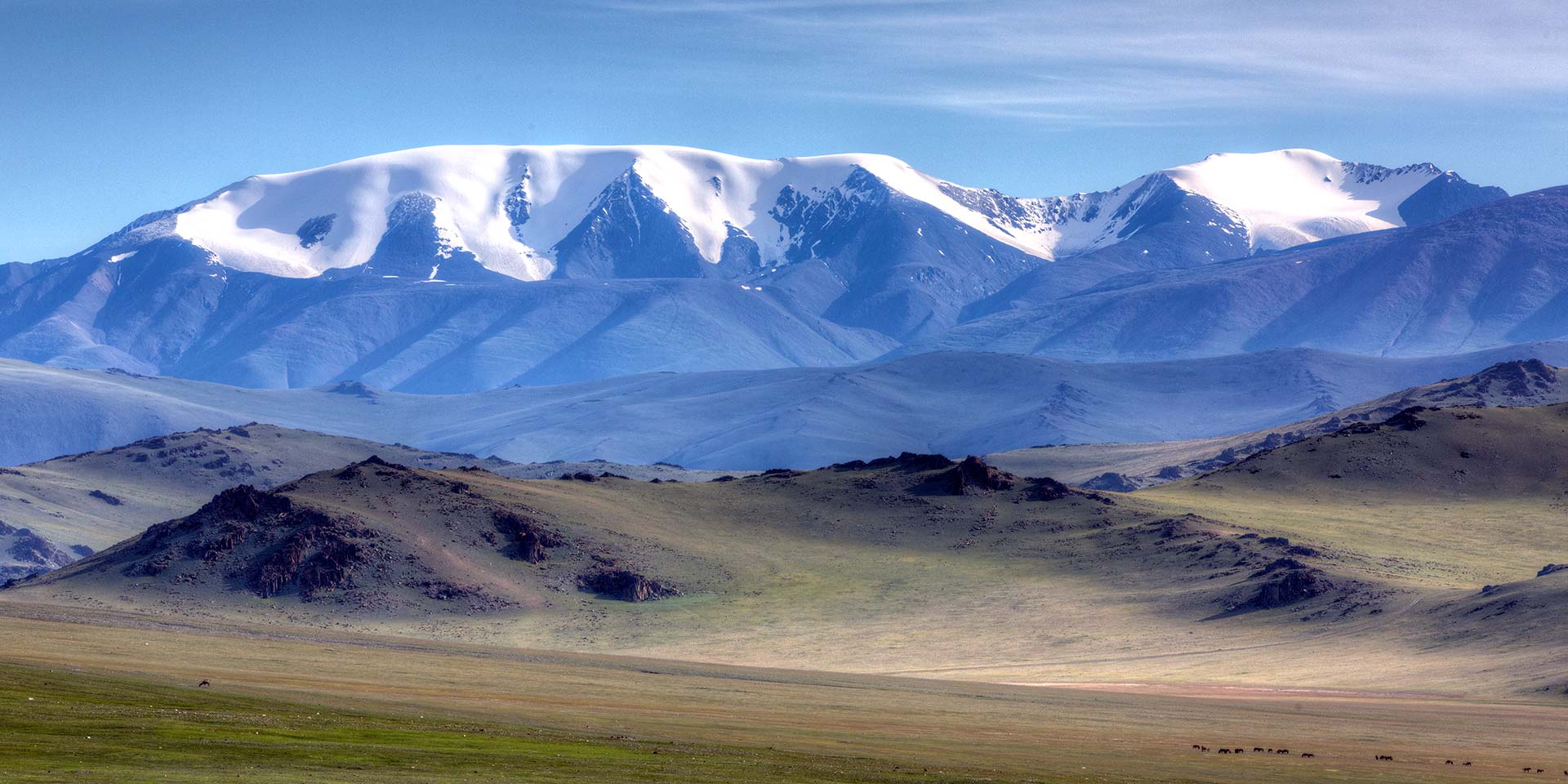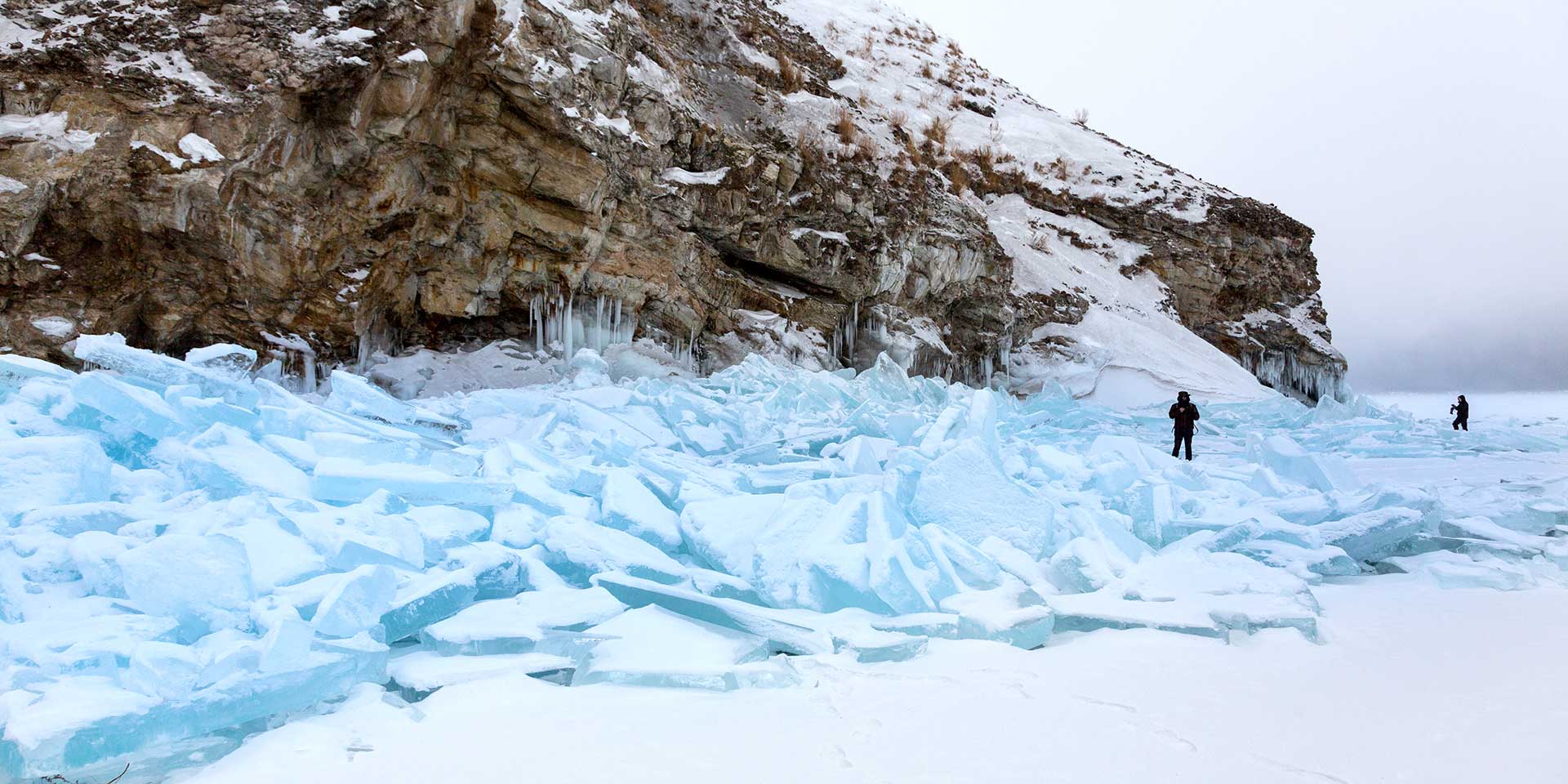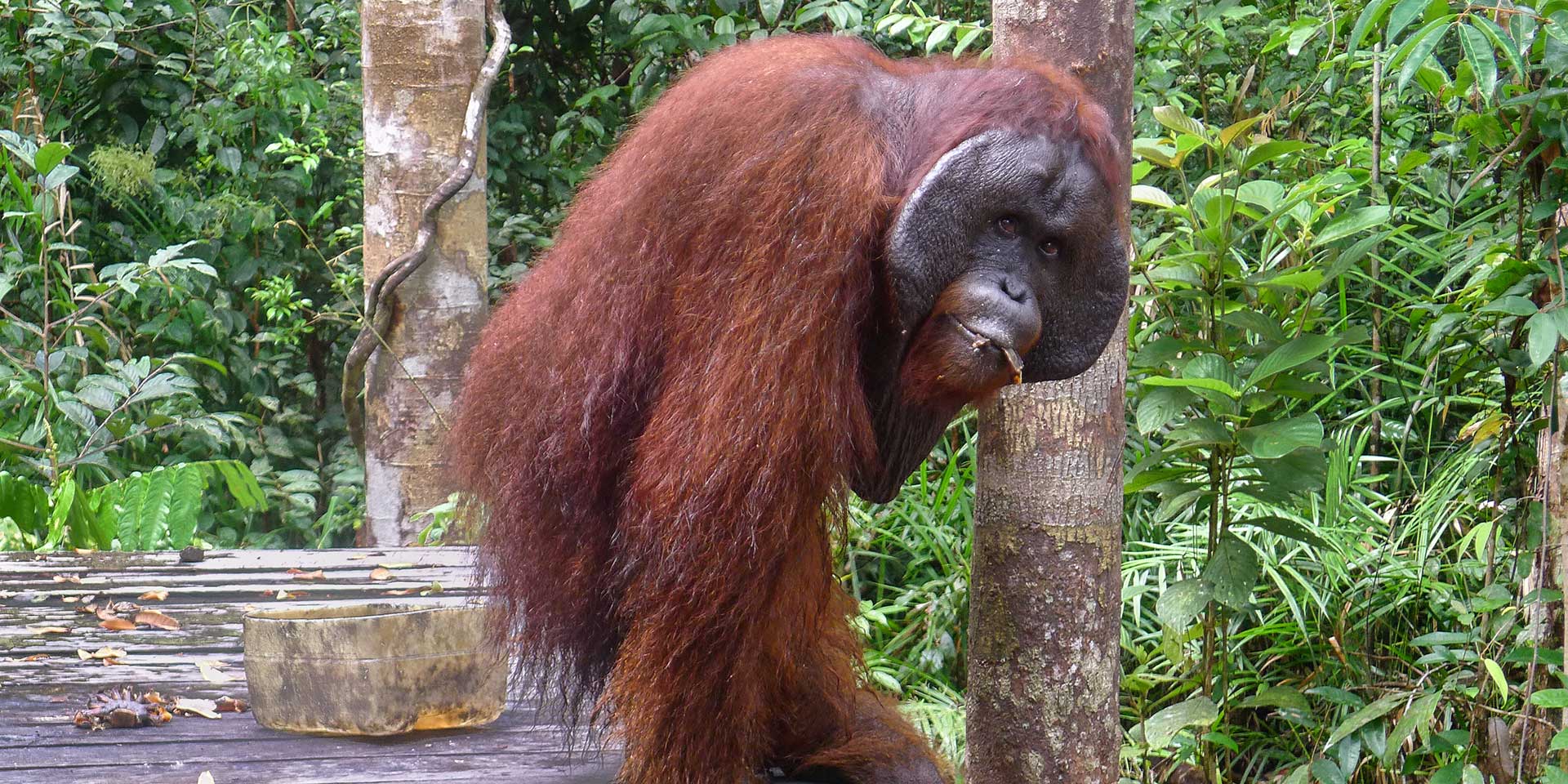
Logging, palm oil plantations, poached for their pelts – today the great orange ape of Asia is found only in a few remote reserves. Tanjung Puting in Indonesian Borneo plays refuge to these gentle, intelligent beasts and is giving them a chance to bounce (or, perhaps more aptly, swing) back from the brink.
At last count, planet Earth hosts only around 104,000 orangutans, less than half of what existed a century ago, but in 2006 there were only 60,000. Tanjung Puting is a fitting jungle vantage from which to watch this wise old ape of Borneo make a hooting comeback.
While it’s possible to fly in from Jakarta, Surabaya, and several cities in Kalimantan, we drove four hours to Semarang, and then flew an hour on Trigana Air into the coastal town of Pangkalan Bun, keen to see these wonders of the natural world and, indeed, a close relative.
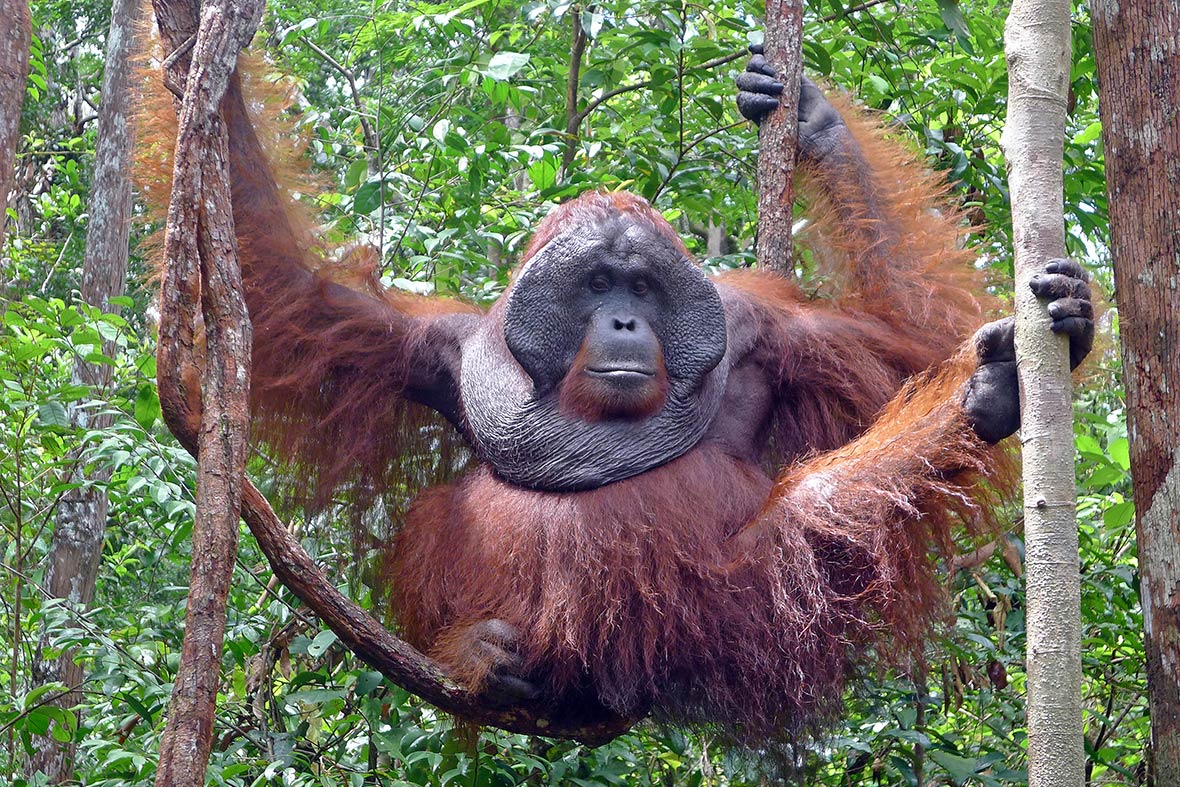
The DNA of orangutans is not unlike that of humans, and they are by far the most intelligent of the great apes. Orangutans use tools, have intricate sleeping quarters, and are similar to humans in their social patterns – better, it must be said, in some respects.
The name, first appearing in the English language in 1691, comes from the Malay “orang” meaning “person” and “hutan” meaning “forest.” Orangutans gained global scientific prominence in 1869 when Alfred Wallace, one of the fathers of modern evolutionary theory, published an insightful paper entitled, “The Malay Archipelago: The Land of the Orang-Utan and the Bird of Paradise.”
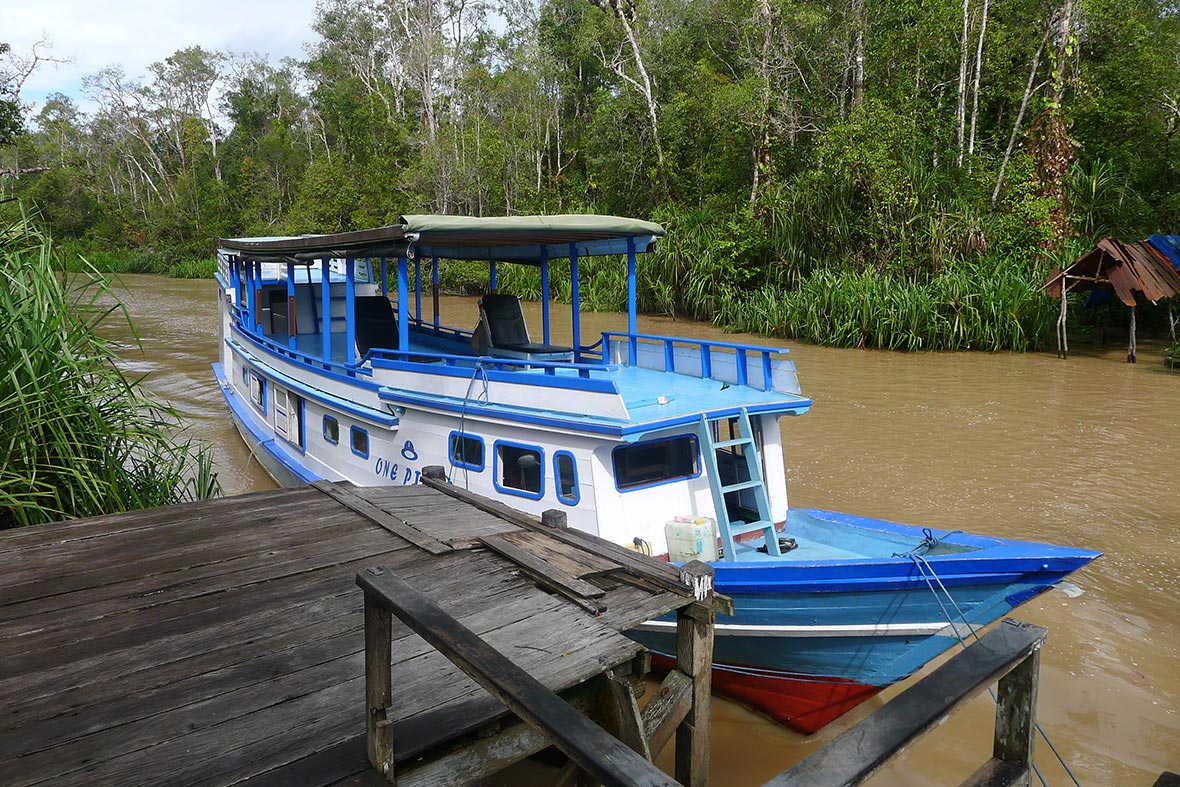
Twenty minutes from the small coastal city of Pangkalan Bun in Kalimantan, things begin to “feel” like Borneo. Arriving at a riverbank bustling with commerce, we boarded our “klotok” boat, heading up-river for approximately two hours, just as the sun began to set in the distance.
The boat was quite basic: two open-air floors and two chairs, Spartan trappings appropriate for the wilds of Borneo – what better seats might one ask for when staring at surprisingly large proboscis monkeys carousing in the trees.
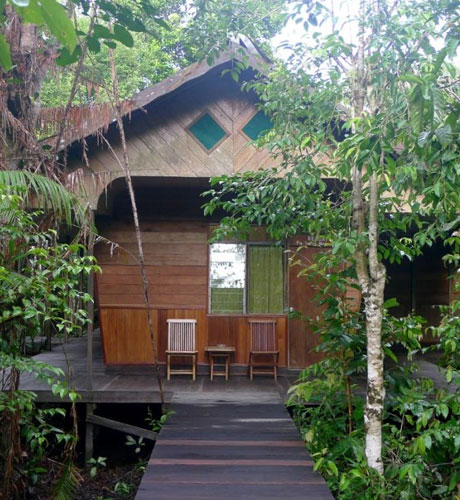
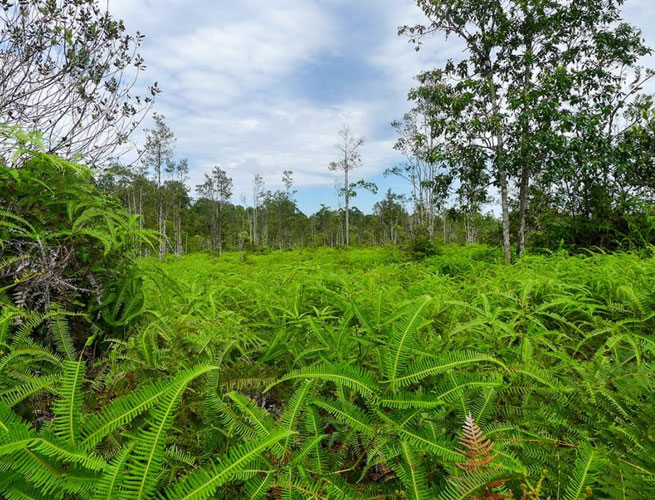
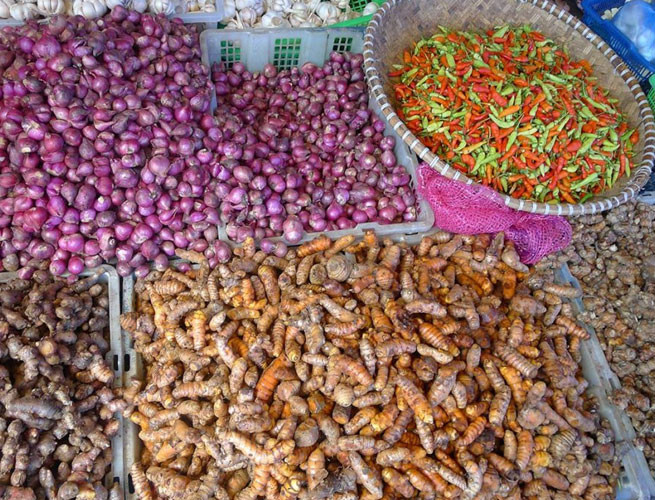
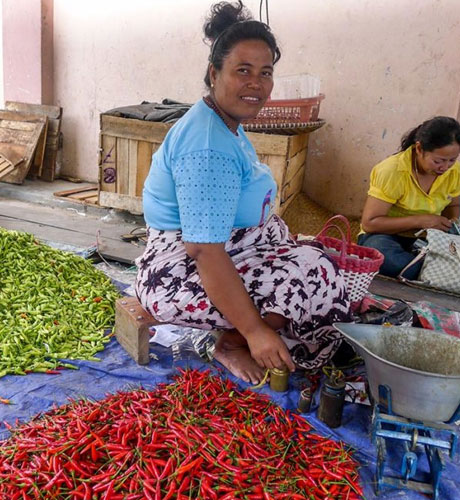
A stay in the Rimba Eco Lodge is recommended for its amenities of air-conditioning and hot water and, also, because it was the only hotel in the area. Mosquitoes abounded, which is only to be expected in the wilds of the jungle; less expected were the signs of warning visitors not to swim because of crocodiles.
For those wishing to sleep with the crocodiles, some choose to stay on a boat – the benefits of which include subtracting the tedious trip back and, with a little luck, better food than that found at the Rimba Eco Lodge.
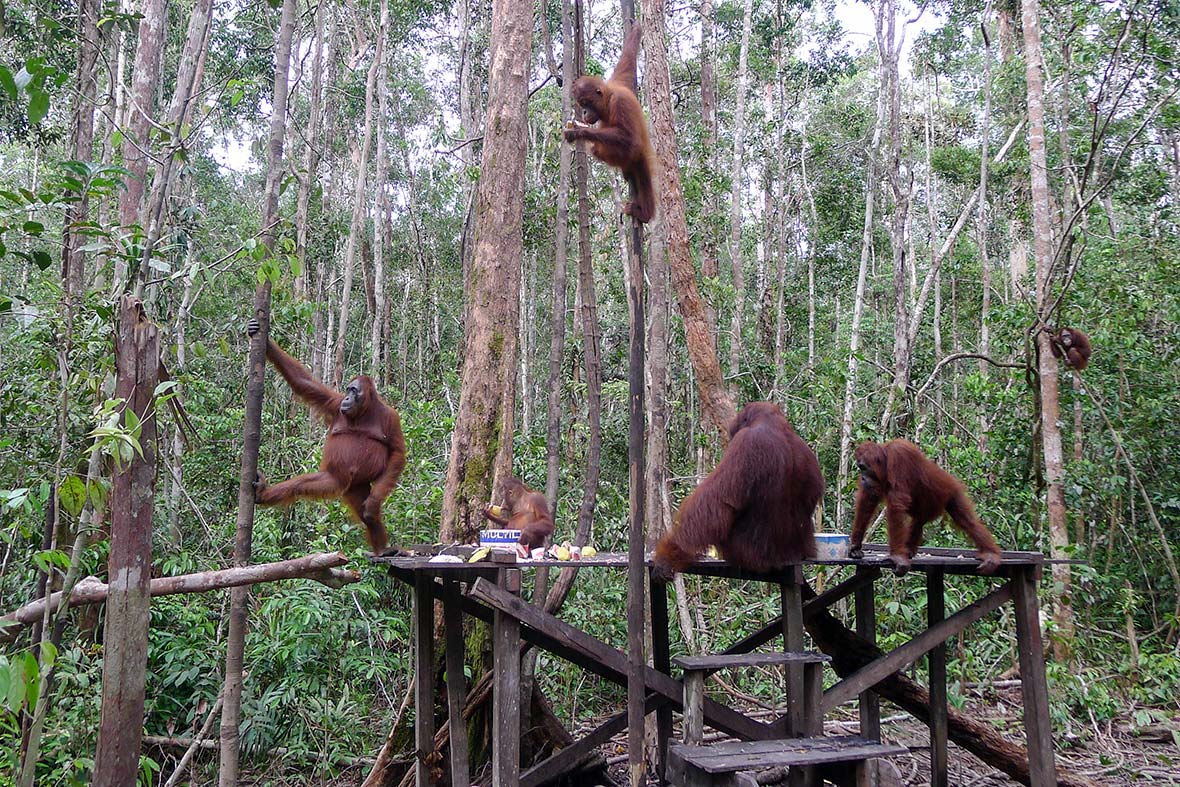
The proper English noun for a group of Orangutans is a buffoonery; the wisdom in their tired faces begs to differ
Early in the morning, we boarded our klotok and headed upriver for the Pondok Tangguy feeding station. Morning feeding begins at 9am, so getting there early is crucial. Lucky enough to have only ourselves and one Japanese family in attendance, we waited.
Surely enough, these lumbering, long-armed hulks made their way through the forest to the platform to eat. The apes, we were told, are technically wild but hang around the area for the easy meals. Their tiny eyes lull over the landscape and their long, dexterous limbs pick and grab at food and trees in curious, careful excitement. In there faces, something intelligent – something approaching wisdom. The proper English noun for a group of Orangutans is a buffoonery; the wisdom in their tired faces begs to differ.
For the athletic and adventurous, it is possible to trek six hours through the lush, beautiful jungle from Pondok Tangguy to Pesalat, but after an hour or so at Pondok Tangguy, we boarded the boat and headed to Camp Leakey. The brown, muddy river turns pitch black in certain areas; this was the first evidence I saw of illegal logging in the area. The water was once completely black, our guide informed us, but logging in the area has a significant impact in its color.
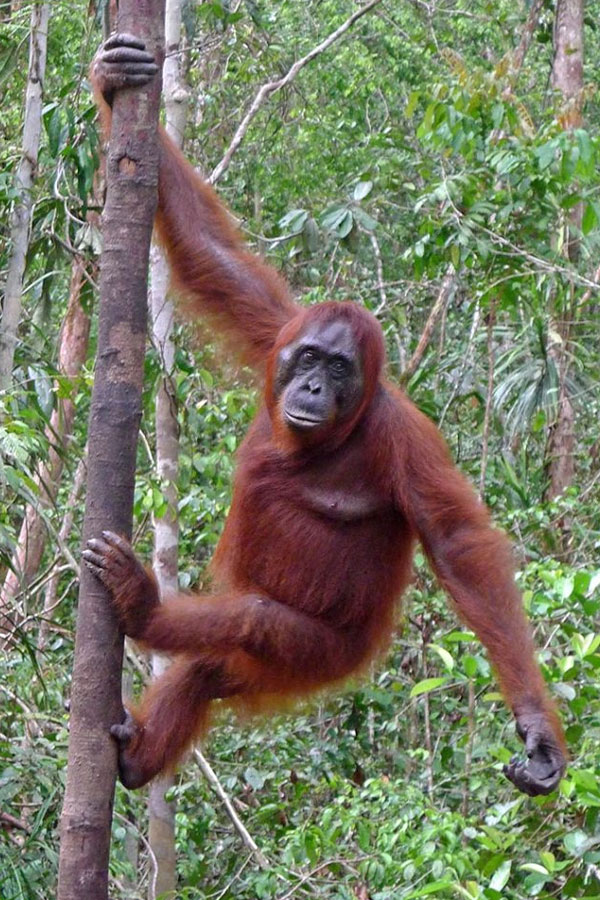
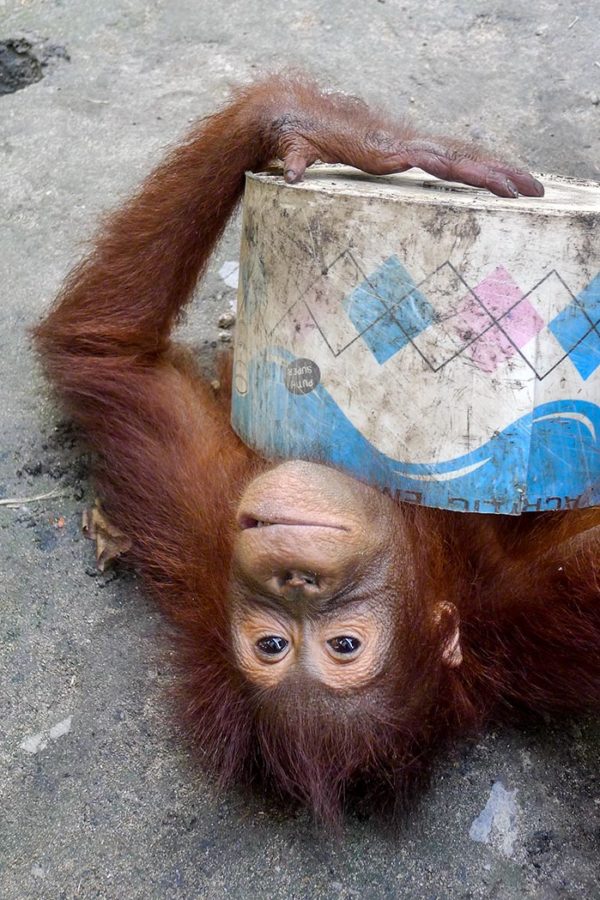
To consider the full geographic retreat of the orangutan, ponder this: until about 12,000 years ago, orangutans were found as far north as Southern China and were dispersed throughout Southeast Asia. About 10 percent of the rain forests that remain on Earth are found in Indonesia — second only to Brazil. Today, Indonesia has lost 80 percent of its total forested area, quite troubling, as Indonesia is host to 12 percent of all the Earth’s mammal species.
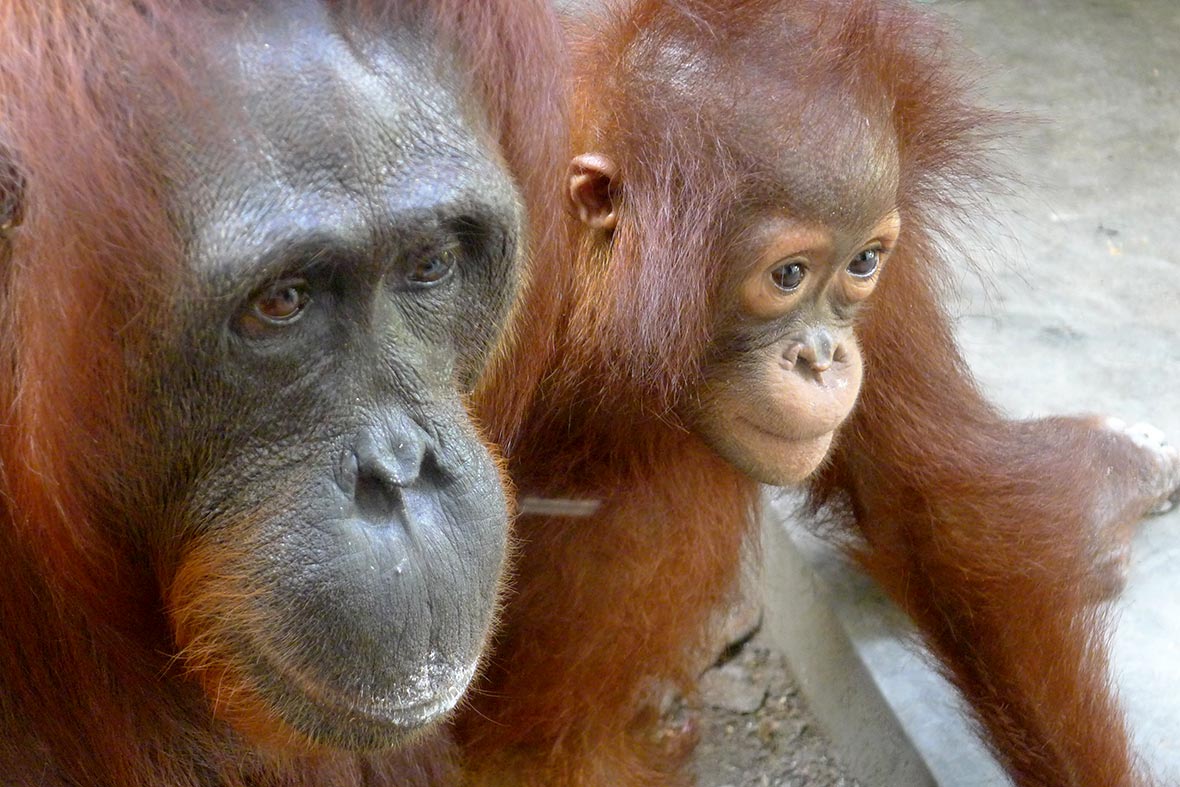
On the way to Camp Leaky, a base for scientists and park personnel, we stopped to chat with some rangers. A couple of female orangutans were hanging about, including a baby – so tame you could touch them. This indescribably intimate moment with one of nature’s most intelligent apes was an experience like no other, like staring deep into the past and into a whole life lived in the wilds of Borneo.
Feeding time at Camp Leakey is at 2pm, so we set off down the path, followed by orangutans – one even grabbed my leg on the way. There certainly were more people here than at Pondok Tangguy but luckily it still wasn’t overcrowded. The company of apes included one very large male and a clutch of females; one brave male attempted and approach but the big male hurriedly chased him away.
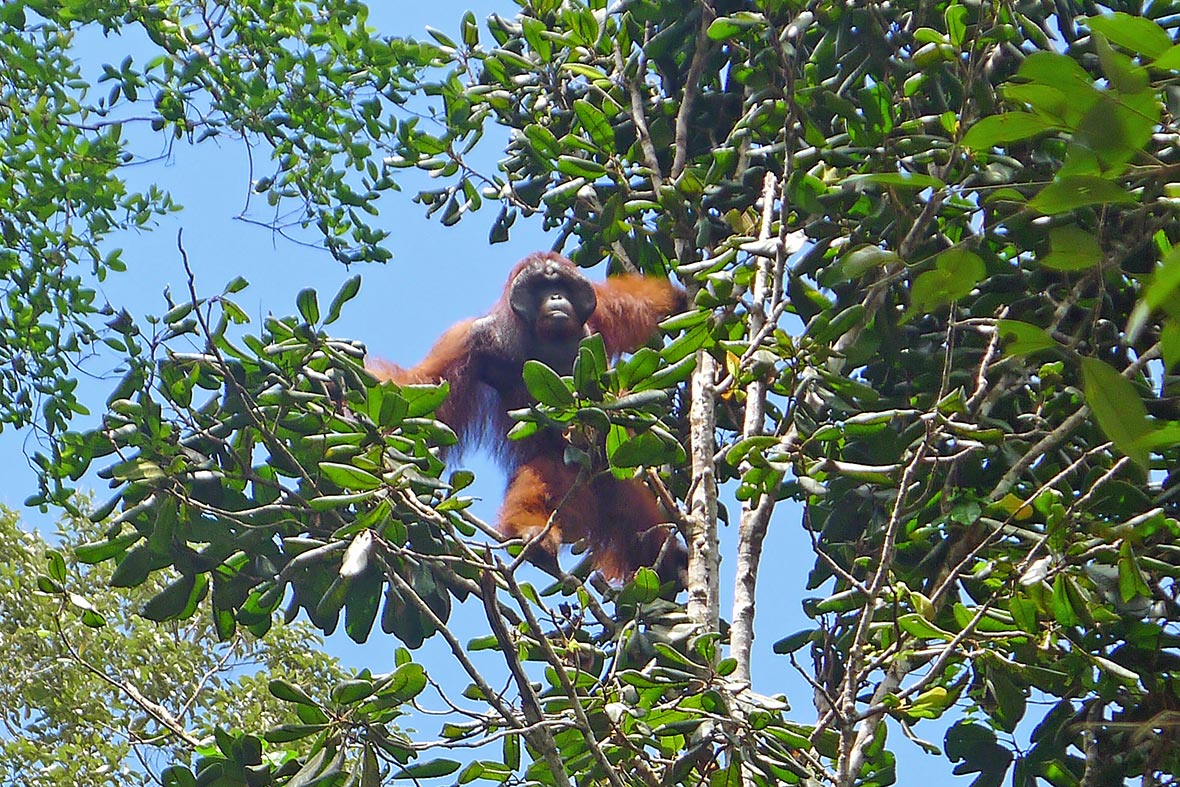
Heading back to the boat, we had a stroke of luck. The “King” orangutan, with the less than regal name of Tom, appeared on the trail, blocking our path. Any orangutan can be dangerous if threatened, but a king? Thanks to our guides, we learned the proper way to show that were weren’t threatening the king’s dominance (as if King Tom needed to be told), and we left his green, noble court.
The next morning, we headed back to Pangkalan Bun for our flight to Jakarta, my heart and thoughts captivated by Borneo: the river, the boats, the odd looking proboscis monkeys. But mostly, I thought of the orangutans. I thought of a world before humans when these orange apes dominated the wild, green kingdom; perhaps they will once again.
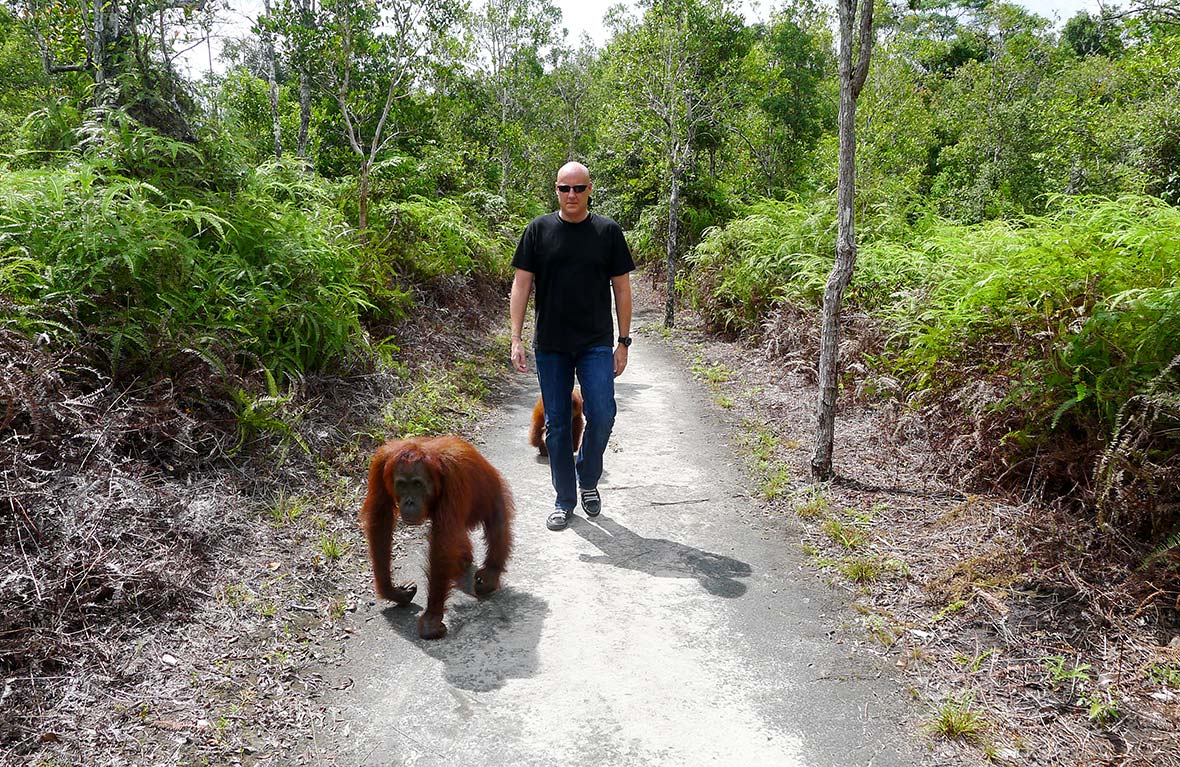
Borneo Orangutan Survival (BOS) Foundation. Active in Kalimantan (Indonesian Borneo)
Sumatran Orangutan Society. Active in Sumatra
Orangutan Foundation International. Active in Kalimantan (Indonesian Borneo)
Orangutan Land Trust. Active in Kalimantan (Indonesian Borneo)


